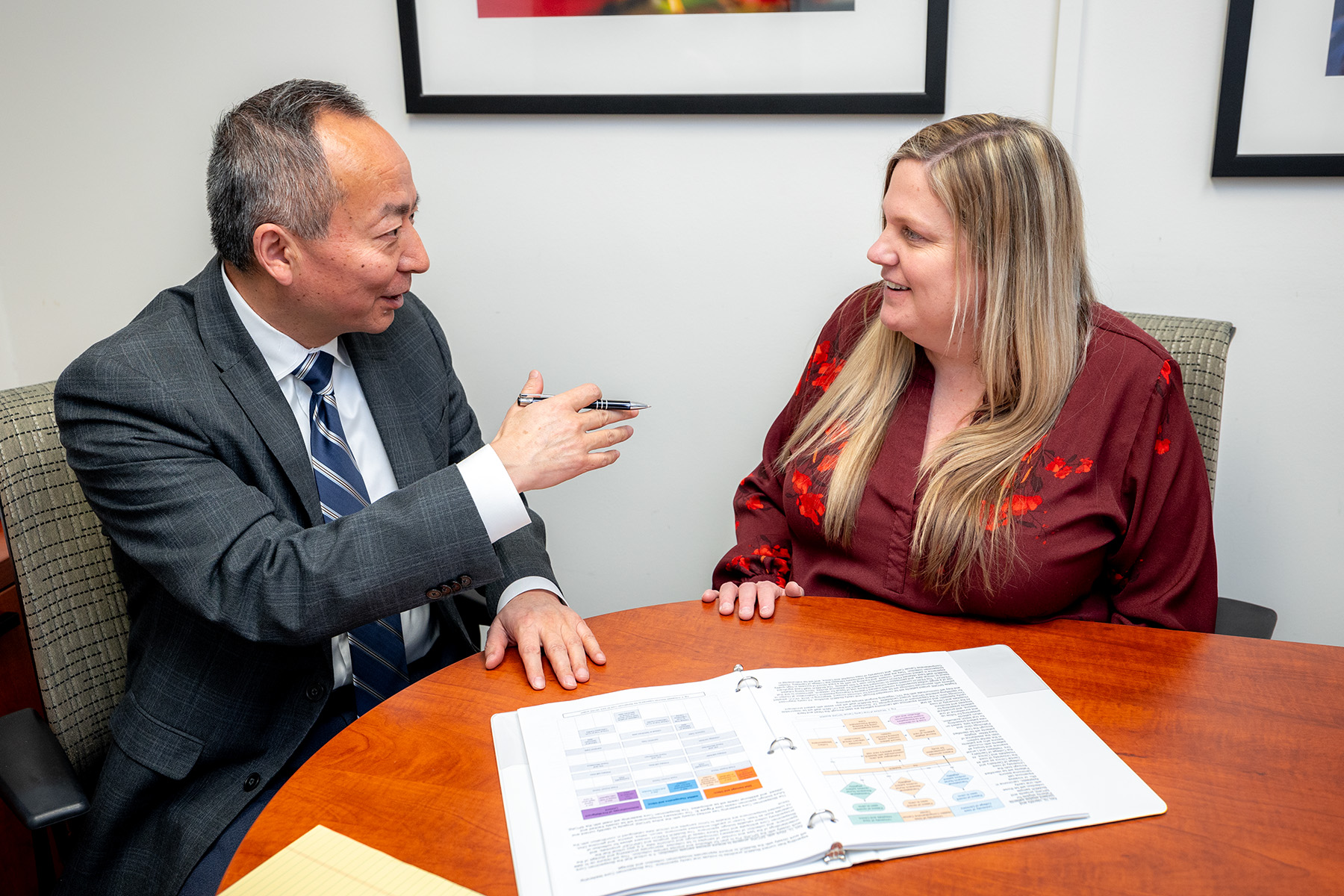It’s a cold wintery day in January, a week before the deadline to submit documents for National Institutes of Health (NIH) grants. The email inboxes and the offices of Iowa Dentistry’s grant administration team are flooded with last minute questions and new grant documents as the team gets closer to the deadline. This is one of three NIH submission cycles per year. The research enterprise at Iowa Dentistry is organized around these cycles annually.
“Although there is a cyclical process for submitting grants, it really ends up being a yearlong process,” said Ann Lawler, research support manager for the Iowa Institute for Oral Health Research and the lead for the grant administration team in Iowa Dentistry.
Although it was once common for university researchers to be responsible for developing, navigating funding requirements, and submitting their own grant applications, that is no longer the case.
Like most high-level research universities, Iowa Dentistry relies on its grant administration team to help faculty develop their grant applications, ensuring that the applications meet all grant requirements while providing feedback to faculty members and identifying potential weakness in the grant application.
“Sometimes faculty and staff don’t realize the kind of review that our team provides so that we can make our grants as competitive as possible,” explained Mikaela Rhoads, research support specialist on the grant administration team for Iowa Dentistry. “Our goal is to free up our faculty to focus on the science in their grants,” she added.
When faculty submit materials to the grant administration team well before the deadline, the team has the space and time to provide stronger reviews and more support. This kind of support is important for faculty at all stages of their career, but it has proven especially valuable to those just starting their research. NIH funding is extremely competitive, and a small percentage of grants submitted end up being funded.
“We train new faculty and research fellows to help them navigate the complicated NIH system, so that they understand the process, the grants available and their requirements, and are able to develop competitive grant applications with an appropriate budget,” Rhoads explained.
The grant administration team's process helps to increase the success rate of Iowa Dentistry’s grant applications. The results have been promising. The team submits approximately $55 million in grant proposals to various funding agencies annually. Since 2020, Iowa Dentistry’s research funding has doubled, nearing approximately $10 million per year.
The grant administration team also ensures that all requirements are met after an award is granted. Maria Bertorello, research support specialist on the grant administration team, is the primary support for post-award grant administration. This work involves requests for extensions, completing reports for grants in progress or closed, adding subawards for grants, and making financial projections.
Given the flurry of activity, the increase in number of grants submitted, and recent increases in the number of grants funded, the workload for the team has significantly increased over the last several years. That’s one reason the team expanded from one person prior to 2020 to the three-person team now. Yet the work continues to expand, and the team continues to support further research success.
Their secret: “We work really hard,” said Lawler, “and we work really well together,” added Rhoads, “and we rely on one another,” said Bertorello.
Together, they form a strong, coherent team. As another cycle of grant submissions come and goes, please take the time to express your appreciation for the excellent work of the grant administration team. They are juggling multiple projects, at various stages of completion, from faculty and research fellows at all stages of their careers.
“The grant administration team is superb,” said Xian Jin Xie, associate dean for research in Iowa Dentistry, “and our research successes are due in no small part to their on-going efforts to support our faculty and researchers.”

